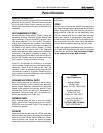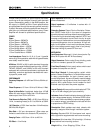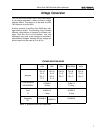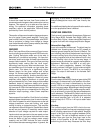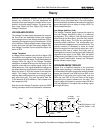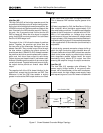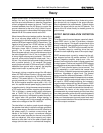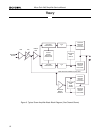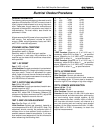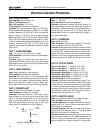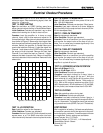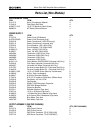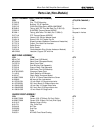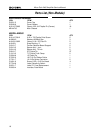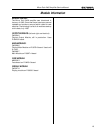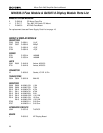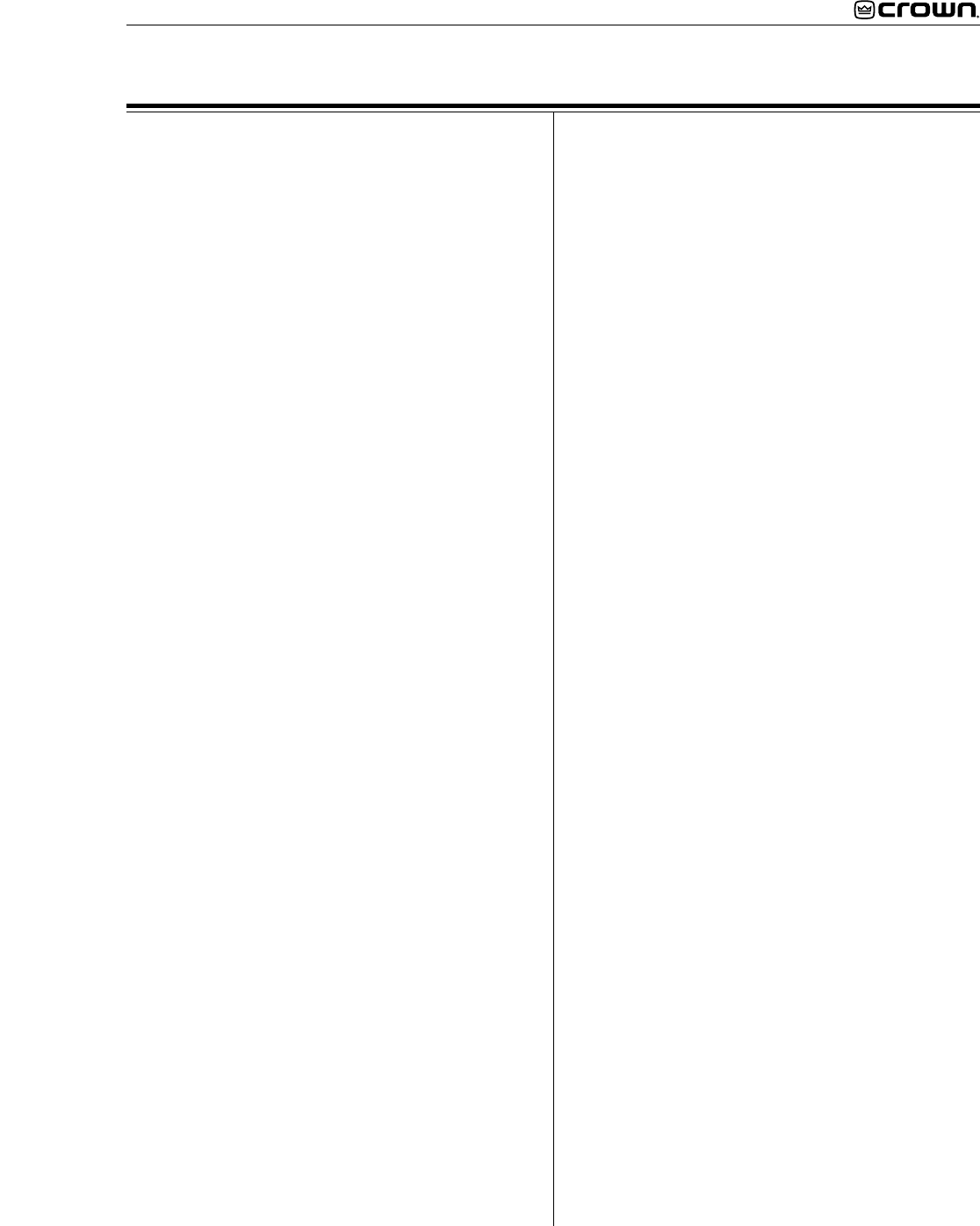
Micro-Tech 2400 Amplifier Service Manual
13
Electrical Checkout Procedures
GENERAL INFORMATION
The following test procedures are to be used to verify
operation of this amplifier. DO NOT connect a load or
inject a signal unless directed to do so by the proce-
dure. These tests, though meant for verification and
alignment of the amplifier, may also be very helpful in
troubleshooting. For best results, tests should be
performed in order.
All tests assume that AC power is from a regulated 120
VAC source. Test equipment includes an oscillo-
scope, a DMM, a signal generator, loads, and I.M.D.
and T.H.D. noise test equipment.
STANDARD INITIAL CONDITIONS
Level controls fully clockwise.
Stereo/Mono switch in Stereo.
Sensitivity switch in 26 dB fixed gain position.
It is assumed, in each step, that conditions of the
amplifier are per these initial conditions unless other-
wise specified.
TEST 1: DC OFFSET
Spec: 0 VDC, ±10 mV.
Initial Conditions: Controls per standard, inputs shorted.
Procedure: Measure DC voltage at the output connec-
tors (rear panel). There is no adjustment for output
offset. If spec is not met, there is an electrical malfunc-
tion. Slightly out of spec measurement is usually due
to U104/U204 out of tolorance.
TEST 2: OUTPUT BIAS ADJUSTMENT
Spec: 300 to 320 mVDC.
Initial Conditions: Controls per standard, heatsink tem-
perature less than 40°C.
Procedure: Measure DC voltages on the output module
across R02, adjust R26 if necessary. Measure DC
voltages on the output module across R21, adjust R23
if necessary. Repeat for second channel.
TEST 3: ODEP VOLTAGE ADJUSTMENT
Spec: Bias Per Chart, ±0.1V DC.
Initial Conditions: Controls per standard, heatsink at
room temperature 20 to 30°C (68 to 86°F). Note: This
adjustment should normally be performed within 2
minutes of turn on from ambient (cold) conditions. If
possible measure heatsink temperature, if not mea-
sure ambient room temperature. Use this information
when referencing the following chart.
°F °C V
–ODEP
V
+ODEP
66 18.9 –10.31 10.31
68 20.0 –10.26 10.26
70 21.1 –10.20 10.20
72 22.2 –10.14 10.14
74 23.3 –10.09 10.09
76 24.4 –10.03 10.03
77 25.0 –10.00 10.00
78 25.6 –9.97 9.97
80 26.7 –9.91 9.91
82 27.8 –9.86 9.86
84 28.9 –9.80 9.80
86 30.0 –9.74 9.74
88 31.1 –9.69 9.69
90 32.2 –9.63 9.63
92 33.3 –9.57 9.57
94 34.4 –9.51 9.51
–ODEP Procedure: Measure pin 6 of U100 and, if
necessary, adjust R121 to obtain V
–ODEP
as specified
above. Measure pin 6 of U200 and, if necessary,
adjust R221 to obtain V
–ODEP
as specified above.
+ODEP Procedure: Measure pin 6 of U103 and, if
necessary, adjust R132 to obtain V
+ODEP
as specified
above. Measure pin 6 of U203 and, if necessary,
adjust R232 to obtain V
+ODEP
as specified above.
TEST 4: AC POWER DRAW
Spec: 100 Watts maximum quiescent.
Initial Conditions: Controls per standard.
Procedure: With no input signal and no load, measure
AC line wattage draw. If current draw is excessive,
check for high AC line voltage or high bias voltage.
TEST 5: COMMON MODE REJECTION
Spec at 100 Hz: –70 dB.
Spec at 20 kHz: –50 dB.
Initial Conditions: Controls per standard.
Procedure: No load. Inject a 0 dBu 100 Hz sine wave
into each channel, one channel at a time, with inverting
and non-inverting inputs shorted together. At the
output measure less than –44 dBu. Inject a 0 dBu 20
kHz sine wave into each channel, one channel at a
time, with inverting and non-inverting inputs shorted
together. At the output measure less than –24 dBu.
Adjust R921 or R1021, if necessary, to obtain the
required measurements.



